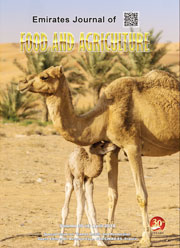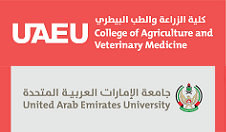EVALUATION OF ORGANIC MATTER, BIO-INOCULANTS AND INORGANIC FERTILIZERS ON GROWTH AND YIELD ATTRIBUTES OF TOMATO WITH RESPECT TO THE MANAGEMENT OF PLANT-PARASITIC NEMATODES
DOI:
https://doi.org/10.9755/ejfa.2015.04.036Keywords:
Azotobacter, Azospirillum, sesame cake, tomato, management, plant-parasitic nematodesAbstract
A field experiment was conducted to assess the effect of inoculations of biological nitrogen fixers using Azotobacter and Azospirillum individually and concomitantly with different recommended doses of inorganic nitrogen fertilizers and organic matter in the form of sesame (Sesame indicum) cake on the growth, yield and quality traits of tomato (Solanum lycopersicon L.) in relation to the management of plant-parasitic nematodes. The multiplication rate, egg masses, and root-galls per plant of these nematodes were reduced significantly by the individual inoculation of biological nitrogen fixers as well as with organic matter; while concomitant inoculation of bio-inoculants showed a synergistic effect in increasing crop growth and yield. Azospirillum was found to be more effective than Azotobacter. The highest improvement was recorded in the yield and growth parameters, plant height, fresh and dry weights, percent pollen fertility, green fruits yield per plant, chlorophyll content and ascorbic acid content when these biological nitrogen fixers were added concomitantly in various combinations. The Nitrogen-Phosphorus-Potassium (NPK) contents in plants and in soil increased considerably in almost all the combinations whenever these bio-fertilizers were inoculated and thus, reduce the fertilizers needed for commercial tomato production. The best results were obtained with 100% recommended dose of nitrogenous fertilizers along with the bio-fertilizers and farm yard manure.










 .
.